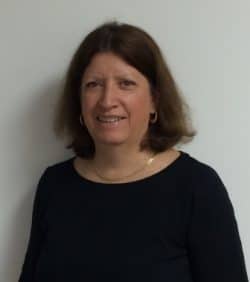A New Kind of Family Portrait

For many families, Thanksgiving is a time to gather together to appreciate the good things that have happened over the course of the year. Multiple generations join to share their favorite foods, watch the Thanksgiving parade, or enjoy a football game. In addition, since 2004, the U.S. Surgeon General has asked Americans to create a new Thanksgiving tradition. Thanksgiving has been designated as National Family History Day. It is a great opportunity for families that are assembled for dinner to discuss their medical history as a group.
Family history is a very important part of genetic screening or testing. Knowing about the conditions that affected previous generations can provide information about risks for the current generation. Knowledge about family history enables individuals to take steps leading to early detection or even prevention of diseases that affected our parents and grandparents. It is important to discuss conditions like heart disease, strokes, diabetes, osteoporosis, arthritis, Alzheimer’s and cancer.
What are the red flags to alert us to the need for cancer genetic testing in a family? The first thing we look for is cancer at unusually young ages. Anyone with breast cancer at age 45 or younger meets guidelines for testing. The second thing is rare cancers. Ovarian cancer and male breast cancer are rare; anyone diagnosed with these at any age meets guidelines for testing. The third thing we look for is multiple cases of the same or related cancers. A family meets guidelines for testing if there are three or more people on the same side of the family with breast cancer, regardless of age of onset. Finally, ancestry is important. Any Ashkenazi Jewish woman with breast or pancreatic cancer meets guidelines for testing.
While discussing family history is important, it is not unusual for family members to be secretive about their medical conditions. They may feel partly responsible for what has happened to them. They may be afraid of being subjected to unsolicited advice about how to manage their illness. They may not want to burden other family members with upsetting news.
What is the best way to open up communication about family history? In many families, it may be easy enough to bring up the topic while everyone sits around the Thanksgiving table. However, a more gradual approach may be necessary if affected family members are resistant to sharing information. A more private encounter may be more effective. It is important to emphasize how the information about family history can be helpful, avoiding any comments that can be perceived as blame. No one can be considered “at fault” for passing on an inherited mutation.
So, this Thanksgiving, reach out to your family members to find out about any cancer history in previous generations. Educate your family about what you discover. And, finally, speak with your doctor or genetic counselor about your concerns. You are not alone. If you are considering genetic counseling or testing, call Sharsheret and speak privately with our genetic counselor and our clinical team at no cost to you or your family. We can schedule a family conference call, to help you facilitate the genetics conversation with your family and answer critical questions. Together, we will help you understand the genetic testing process and assist you in making informed decisions.
